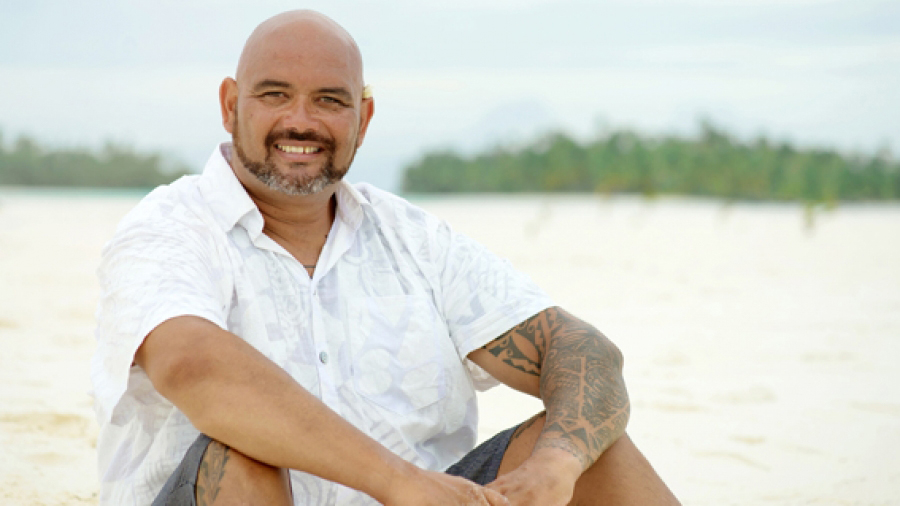The battle for moral and information high ground
Saturday 5 February 2022 | Written by Thomas Tarurongo Wynne | Published in Editorials, Opinion

Columnist Thomas Tarurongo Wynne. Photo: CI NEWS/16040843
We must never dehumanise those who may draw the line differently to ourselves, because in that moment we inadvertently become what the other side of that argument most feared, and leave the ‘table of understanding’.
It’s so good to be home, there is no place like it and no place I would rather be. And yet in just a few days I can see that the battle for the moral and information high ground is as evident here in our little paradise as much as it is across the globe and in Aotearoa. Those health officials that strongly recommend adult vaccination and now the vaccination of our children is a hot topic and one that reaches into the deepest part of care and protection for those we are entrusted to look after and care for – our children. And for the most part, we have trusted medical advice, and vaccinated – without too much care or concern – our babies from the Rotavirus at three months, to the tetanus of our teenagers.
Though the terms ‘vaccination’ and ‘immunisation’ don’t mean quite the same thing, as vaccination is the term used for getting a vaccine — that is, actually getting the injection. Immunisation refers to the process of both getting the vaccine and becoming immune to the disease following vaccination. Nonetheless we have for many years seen the likes of Polio and Hepatitis so reduced in our communities, the immunisation/vaccination of our babies and children has taken place with little resistance towards those we entrusted with their medical care. Oh, how things have changed.
People do not get vaccinated for a plethora of reasons including, they don’t believe the science, they don’t believe the mainstream media, they believe it is an apocalyptic revelation of the book of revelations, they don’t believe the government and generally they don’t believe there is a global pandemic or that it is not as intense as we are being told or a little bit of all the above.
Last week I had a very interesting conversation walking home from work with a Freedom and Rights protestor. We sat on the side of the road as he talked about his reasons for not being vaccinated and why. I told him what I did for a job and why I took an opposing position to his and why I felt the New Zealand government’s health response was absolutely necessary. Of course, we strongly disagreed, but how often do we actually sit and listen and allow space to strongly disagree anymore.
Today here in Rarotonga, I had a similar conversation with a person strongly opposed to the Cook Islands government’s position. Regardless, I explained my position and we again agreed to disagree, and we exchanged ideas and I listened as that was more important than agreeing or disagreeing. What I believe we can’t afford to do is to dehumanise people because of their beliefs or decisions and in the process lose our capacity to love, care or empathise with our fellow man, or woman.
Because love is only ever love when it is confronted with the power to not love. Light when confronted by the choice instead of darkness and empathy – true heart felt empathy – when it is confronted by arrogance, on any side of an argument that will no longer listen because all we can hear is that we are right and they are wrong. How did we become so polarised, how did we retreat into holy huddles waiting for the apocalypse and how did we simply lose sight of all we have in common, our humanity, our love for each other and our sovereignty? Because I do also believe that a person’s decision making is sovereign and that it must be kept sacred and never should it be encroached upon.
Nonetheless we are in uncertain times and times where our sovereign decisions have a large impact on the quality of life for our fellow man and woman also. Each of us will draw the line of what that looks like but we must never dehumanise those who may draw the line differently to ourselves, because in that moment we inadvertently become what the other side of that argument most feared, and leave the table of understanding.














































